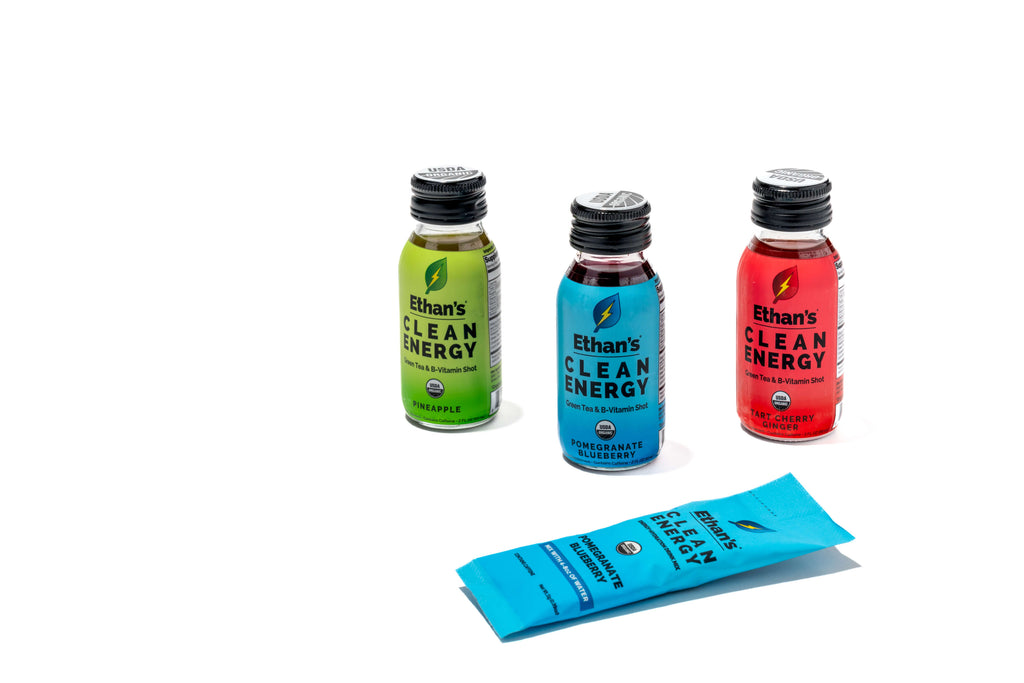Once you’ve consumed caffeine, there isn’t much you can do to make your body metabolize it faster. The only way to get rid of the caffeine is to wait for your body to naturally process it and flush itself out.
Here are 7 things you can do that may help minimize the side effects.
Stop caffeinating as soon as you notice the symptoms
The minute you start feeling caffeine jitters, don’t consume any more caffeine. Foods and beverages with caffeine include coffee, tea, energy drinks, soda, dark chocolate, and some ice creams and desserts.
If you still want to enjoy the flavor and health benefits of coffee, decaffeinated coffee is an option. Decaf contains very low amounts of caffeine, about 2–7 mg per cup. (4)
Be mindful that some medications, supplements, and personal care products may contain caffeine. For example, over-the-counter pain relievers like Aspirin often include 40–60 mg in just one tablet.
Many pre-workout supplements also contain high amounts of caffeine, with up to 250 mg per serving.
Drink water
Staying hydrated can help flush caffeine out of your system and reduce its effects. Aim to drink at least 8 glasses of water a day.
Get moving
Exercise can help to burn off excess adrenaline and release endorphins that can counteract the effects of caffeine jitters. Try taking a brisk walk, stretching, or going for a quick jog. All of these positively impact your mood and mind and can help reduce your jitters.
Try relaxation techniques
Practicing relaxation techniques such as deep breathing, meditation, or yoga can help to reduce stress and promote a sense of calm.
Take a break
If you notice you have caffeine jitters frequently, take a break from caffeine for a few days or reduce the amount you consume each day.
Eat a balanced meal
Eating a balanced meal that includes protein, healthy fats, and fiber-rich complex carbohydrates can alter the metabolism of caffeine and reduce its impact on the body. (5)
Drink Ethan’s clean energy shots
Try Ethan’s Clean Energy Shot for a better way to boost energy and avoid caffeine jitters. With 150 mg of plant-based caffeine, bioavailable B-Vitamins️, and adaptogens, Ethan’s provides a clean and balanced energy boost without the excess sugar.
What separates Ethan's Clean Energy from other energy drinks on the market is its unique proprietary blend of natural caffeine derived from real plants, which increases focus without the jitters.
Natural Remedies for Caffeine Jitters
Chamomile Tea: Chamomile tea's calming properties help alleviate caffeine jitters by binding to brain receptors, promoting relaxation and reducing anxiety.
Lemon Water: Lemon water, a natural detoxifier and hydrator, aids in flushing out caffeine and its effects, delivering a refreshing and soothing sensation.
Magnesium Supplements: Magnesium supplements aid in reducing caffeine jitters by calming the nervous system and regulating the body's stress response.
Valerian Root: Valerian root is a herbal sedative that reduces anxiety, promotes better sleep, and helps manage caffeine jitters.
Lavender Essential Oil: Lavender essential oil calms and soothes the mind and body, aiding in the relief of anxiety and stress caused by caffeine jitters through aromatherapy or topical application.
Long-Term Strategies for Managing Caffeine Jitters
Gradually Decreasing Caffeine Consumption: Gradually reducing caffeine intake over time can help the body adjust and minimize the occurrence of jitters.
Finding Sustainable Alternatives: Exploring alternative beverages like herbal teas or decaf options can provide a satisfying experience without the excessive caffeine content.
Incorporating Stress-Management Techniques: Implementing stress-management techniques such as meditation, deep breathing exercises, or regular physical activity can reduce overall stress levels, contributing to a healthier response to caffeine.








